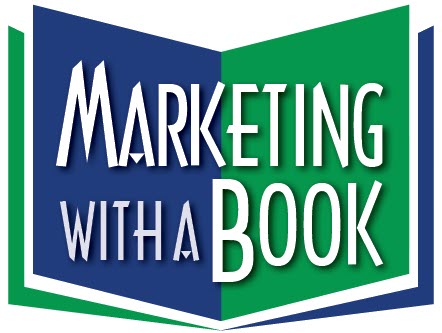Early bird pricing ends October 14 for the Marketing With A Book Summit to be held November 13-14, 2010 at the La Jolla Shores Hotel in San Diego, California. The normal conference price is $1000 but attendees can come for $495 if they register by the deadline.

Authors Henry DeVries (left) and Chris Stiehl will be two of the featured speakers at the Marketing With A Book Summit. In addition to consulting, both earn incomes from professional speaking.
Conference speakers include Arthur Chou, publisher of W Business Books; Mark LeBlanc, past president of the National Speakers Association, and Will Marre, co-founder (with Dr. Stephen Covey) and former president of the Covey Leadership Center. The event is hosted by the New Client Marketing Institute of San Diego.
For more information or to register, visit https://marketingwithabook.com/336/
“To attract new clients, the best approach is to demonstrate your expertise by giving away valuable information through writing and speaking,” says DeVries. “Getting published can lead to paid speaking engagements, which is a strategy that helps consultants, professionals and entrepreneurs get paid to market.”
The conference will cover the following five ways consultants who write books (or have books ghostwritten for them)get paid to market:
- Keynotes and breakouts at association and trade group meetings. A keynote is typically 30 to 90 minutes and usually focuses on a broad topic of interest to all attendees. A breakout session is one of the side sessions at a meeting and last from 45 to 90 minutes. This is the glamour field of professional speaking. Competition is fierce and the big fees go to celebrities (the group is trading on their star status to attract attendees). I put speaking at Vistage groups (formerly TEC) of about a dozen company presidents for half a day at $500 per speech in this category.
- Corporate training. These are typically half-day or full-day seminars and workshops conducted for a private client, usually a corporation, for a group of its employees. This might be the most lucrative field for speaking because there are many companies that have training budgets. Several of my clients who make hundreds speaking for Vistage make thousands when they deliver the same presentations to companies. This one-two punch has made several clients an extra $100,000 per year.
- Sponsoring your own public seminars. This is typically a full-day seminar or workshop where registration is open to the public. You market the event and earn a profit (or loss). This business is about putting fannies in seats. Many times it is a break even proposition getting the attendees there, and then you make your real money selling information products and consulting services at the back of the room after the event is over. Fees can range from $800 to $1,000 per day per attendee all the way down to my three-hour Lunch and Learn seminars for $25.
- Teaching at colleges and for public seminar companies. An alternative to running the seminar yourself is to find a sponsor. This might be for a company like Career Tracks or The Learning Annex. Or you might approach the adult education marketplace through a college or university extended studies program. Typically you might earn 25 percent of what the students pay all the way up to $1,000 for a day.
- Speaking at fundraising workshops where you split the gate. Another alternative to running the seminar yourself is to approach a trade group or association and offer to stage a fundraising seminar. They promote the event to their constituents and you agree to split the profits (typically 50/50 and you may or may not offer them 10 percent of any informational products like books and CDs that you sell in the back of the room after the event).
“Understanding the psychology of clients also provides critical evidence of the validity of the get published and public speaking approach,” adds DeVries. “Professional services and consulting are what economists sometimes call credence goods, in that purchasers must place great faith in those who sell the services. Getting published and public speaking are shortcuts toward building trust.”
